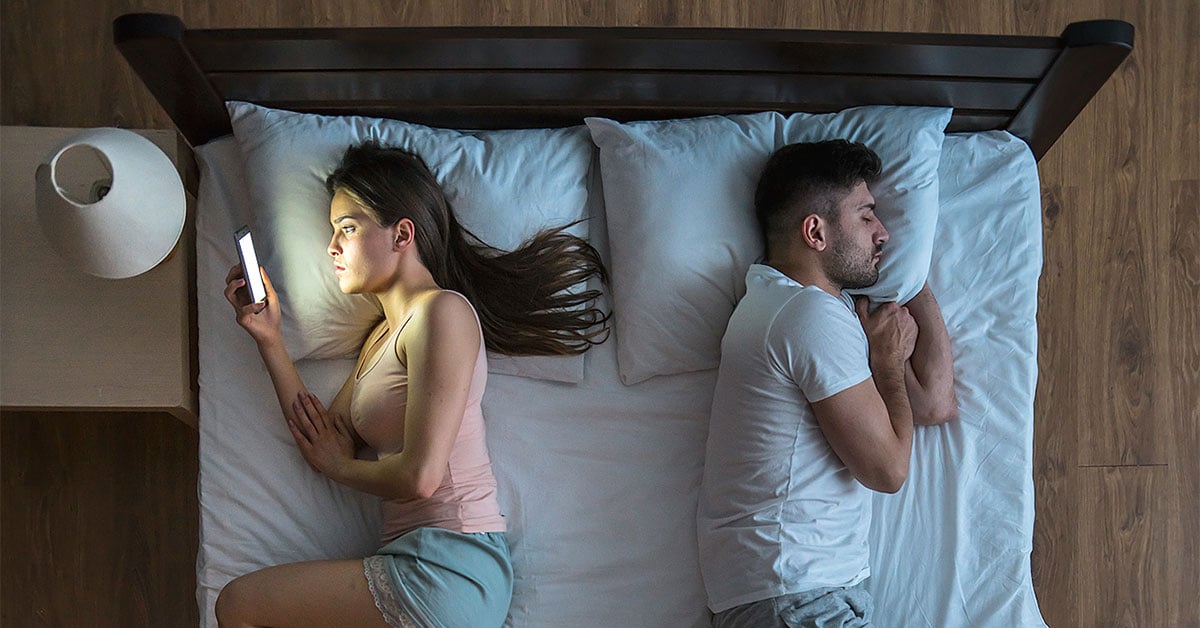“Sleeping together” is a euphemism, an expectation, and for married couples a given. When you love someone, it’s just what you do. Equally telling: When that someone screws up, he or she is exiled to the couch. So this nightly ritual serves as a relationship referendum. Supposedly.
“We have a lot of beliefs about the meaning of the marital bed, but until recently we had virtually no science on the subject,” says Wendy Troxel, senior behavioral and social scientist at the RAND Corporation. “There’s a lot of shame about ‘What if my partner and I choose to sleep apart?’ That’s a cultural shame with no scientific backing.”
Do people sleep better when they sleep together? Technically, no. “When sleep is measured objectively in couples, people sleep a bit worse when they share a bed,” Troxel says, because, well, other people are disruptive. For straight couples, this fact is exacerbated by differences in sensitivities and health: Men are more likely to have certain sleep disorders, such as sleep apnea or snoring, while women “are more vulnerable to insomnia, so their threshold for being awakened by a partner could be lower.”
The latest data reveals that sleeping apart—or as I think we should call it, unconscious uncoupling—is more common than the culture would have you believe. According to the National Sleep Foundation, 12 percent of married couples sleep in separate beds. A mattress company’s recent survey of 3,000 people found that 31 percent of married Americans wished they could “file for a sleep divorce.” For those who can afford to live that dream, dual master bedrooms are on the rise: In 2017, Architectural Digest called separate sleeping arrangements “the hottest new amenity in luxury homes.”
Yet, Troxel says, “when you ask, ‘Do you prefer to sleep with your partner or alone?’ most will say they prefer to sleep with their partner.”
She suspects a biological drive is at work. “Sleep is, evolutionarily, an unsafe state to be in: You’re lying down, semiconscious, your eyes are closed. Humans are social and derive a sense of safety from our connections with others.”
The myth that sleeping apart implies “a loveless or sexless union,” Troxel says—as well as its inverse, that “sleeping together means you have a successful relationship”—damages both things a couple is likely trying to preserve: their relationship and their sleep. “Where I see this go awry is I see couples feel this weight of society telling them what they should or shouldn’t be doing, but then out of desperation they make a choice that could be harmful to their relationship.”
So your partner snores or he has restless-leg syndrome or maybe the way she breathes is really annoying. Rather than talk about it, “you just get increasingly resentful,” Troxel says, and relocate to a pull-out couch, leaving your other half “feeling abandoned or hurt.” Apparently, there’s no getting around an uncomfortable but honest conversation about what you want and need, in this as in all relationship matters.
For what it’s worth, Troxel wants you to know: “The literal meaning of sleeping together does not have to equate to the Biblical meaning.”
This article appears in the October 2019 issue of Washingtonian.















